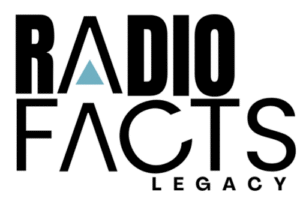
Global Study Reveals Why Live Music Is One Of The Most Powerful Human Experiences And The Ultimate Escape From Digital Overload
Live Nation, the world’s leading live entertainment company released findings today from The Power of Live, a global study that captured trends and behaviors of 22,500 live music fans, from 11 countries, ranging ages 13 to 65.
Conducted in partnership with research agency Culture Co-op, the findings revealed that in today’s digital age, live music is more necessary than ever and creates the ultimate human connection. Though technology has made it easier than ever to connect TO people, it is harder than ever to connect WITH people. 73% of participants stated that now, more than ever, they want to experience real life rather than digital life.
Live music is the antidote. 71% of participants agree that the moments that give them the most life are live music experiences.
Key takeaways from “The Power of Live” study include: In today’s fractured world, live music is more important as a unifying force than ever before.
When asked what defines them most as a person, respondents said music drives identity more than their hometown, politics, race or religion. The only things that are a bigger force than music are friends/family and pastimes.
Live music is in high demand.
The study reported 2/3rds of Gen X, Y and Z (spanning ages 13-49) go to at least one concert or festival a year, with a majority of those that attend going to multiple events. Live Nation sees this growing demand reflected in the er number of fans coming out to concerts and festivals, with event attendance jumping to 86 million in 2017, a 21% increase from the prior year.
Live music facilitates bonding and instantly increases your mood.
Proven through a biometric experiment that studied fans in their element at a live concert, nearly 70% of participants showed significant synchronization of body movements which served as a proxy for oxytocin, the hormone that facilitates bonding and human connection. And the feeling is lasting – even after the encore participants had a mood increase of 5X compared to how they felt before the show.
Live music creates more intense emotions than streaming music, and many value it more than sex.
When asked to reflect upon a recent live music experience, and rate how emotionally intense they felt, 78% of respondents reported they felt high emotional intensity. Other live events and media experiences didn’t stack up: respondents reported feeling less emotionally intense while streaming music (-27%) or while playing video games (-31%). And respondents reported that they were 10% more likely to value live music over sex.
The emotional intensity of live music opens the mind to new ideas.
67% of global audiences say the more emotionally engaged they are, the more open they are to new ideas. In fact, 90% said brands are welcome in the space as long as they find authentic ways to enhance their experience.
Live music fans are cultural catalysts
.Globally, concert goers are 29% more affluent, 4X more likely to be micro-influencers (defined as having at least 1,000 followers on social channels) and are +121% more likely to say they are highly influential among peers.
Additional fun facts.
- Fans will travel for live: 72% of Gen Z/ Millennials have driven over 100 miles to attend a live music event.
- Style matters to fans: Female Gen Z/Millennial live music fans spend 20 more minutes getting ready for a concert vs. everyday prep. And 85% of live music fans have purchased new clothing to wear to a live music event.
- Fans are Tech Savvy: 71% of live music fans say their inner circle comes to them with questions around devices and tech products.
To delve deeper into Live Nation’s The Power of Live study, download the white paper at: livenationforbrands.com
Methodology
Quantitative Global survey (n=22,500): 13-49 year olds across Gen X, Y and Z; markets: US, Canada, Mexico, Brazil, UK, Germany, France, Scandinavia, China, Japan, Australia; October 2017. Qualitative US ethnographies (n=75) and live music intercepts (n=200+): 16-65 year olds; 2016-2018, Biometric Live Music US Experiment (n=40): 16-65 year olds, galvanic skin response, movable EEG device – alpha power brain waves, accelerometer for movement synchronicity; April 2018



